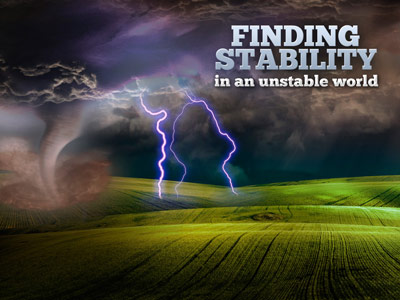-
The Death Wish Series
Contributed by Rick Burdette on Nov 28, 2017 (message contributor)
Summary: Mutiny, pride, security, arrogance
THE DEATH WISH
Luke 15: 11-12 (p740) July 17, 2011
INTRODUCTION:
Have you ever wanted someone to die?
I have! I remember my father's battle with cancer...it had ravaged his entire body...He only weighed 135 pounds when it began, but after battling it for a year...the last six months being the worst...he probably tipped the scale at 90....the chemotherapy....the I.V.'s all the surgivers...At 80 my Dad's earthly body had wasted away...he was finishing the race...and I'm not ashamed to say that in those last 2 weeks I wanted my father to die...
I know Jesus was his Savior...had been since his early teens and reaffirmed through his recovery after losing a leg in world War II. He was ready, Mom was ready, my brother and sister and I were ready...and we were praying for the Lord to take him home...I didn't want him to die because I hated him, or because I couldn't wait to get my inheritance, I wanted him to die because home was better than here.
Our text starts our: "There was a man who had two sons." This story is almost always referred to as "The Parade of the Prodigal Son".
But its not just the prodigal thats emphasized in the story...as the story opens all three major players in the story are mentioned...the father, the younger son, and the older son...maybe a better name for the parable would be "The Compassionate Father and the Two Lost Sons"
The story captures the interaction and the relationship between all three of these individuals...the older son is clearly as important in the story as the younger brother.
In fact the climax of the story occurs in the courtyard at the end. The father is pleading with His oldest son...this sons anger at his father and his younger brother at the end isn't window dressing..its absolutely essential to the entire parable.
As we look at this story through middle Eastern eyes...there are key factors that emerge...we'll continue to examine them as we proceed...verse 1. records.
"The younger one said to his father, "Father give me my share of the estate "So, he divided his property between them."
Such a request meant only one thing in this society... "The younger son is impatient for his father to die."
It is unthinkable in middle Eastern culture for any son to request his portion of the family wealth while his father is still alive. Every middle Eastern peasant..in every village understands this instinctively.
This request would never be made...if it were made the father would get very angry and refuse Why? This request means he wants his father to die!"
Not because of cancer...but only out of selfish disrespect for a system in place from Abraham till now. All across the Middle East from Algeria to Iran, from the Sudan to Syria---hold in highest regard the Father's oversight of the household until his death...at that time he gave his blessings along with his inheritance.
With this truth in mind lets examine what this verse tells us about all three principle characters in the story..beginning with
I THE YOUNGER SON
His request, "Father, give my my share of the estate."
Even this request is a form of mutiny....He uses a long word phrase...the direct natural request would be "I want my inheritance"a In Semetie languages this request is two words. Instead he uses 6 words...literally "Give me the share of property that falls to me."
Why does he want his fathers wealth, but not his inheritance.
Because prodigals always want privilege without responsibility.
In Middle Eastern culture if you accept your inheritance you also accept the responsibility of your families oversight...The oldest carries a double blessing and responsibility, but every son who receives an inheritance stays connected to the clan...administers property for the entire family's benefit...serves as leader over weddings, funerals and feasts.....He pledges himself to build the house of his father...when you hear the words "the God of Abraham, Isaac and Jacob"...that tradition is being carried on (By the way...Jacob wasn't the oldest son).
The inheritance is usually going to be in property....Land, etc....for a middle Eastern peasant family...Land, family, clan were all one and the same. It bound them together...A man's security in the Village was his family. His family is more precious than life itself...his family is his social security, his insurance, his physical and emotional well being...in short it's his substance...his everything.
In this culture its a man's roots---His foundation...who are you is answered..."I'm from the House
of David"..."I'm a member of the tribe of Benjamin".
The younger son rejects it all...he does not break the law...He breaks all relationships and His father's heart....He cares only for himself and sacrifices the family. He doesn't care if others suffer so long as he gets what he demands....1/3 of the family's security will be sold so he can play...there’s no gratitude, no partnership with his father or brother.

 Sermon Central
Sermon Central



